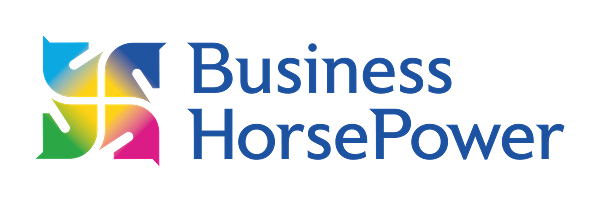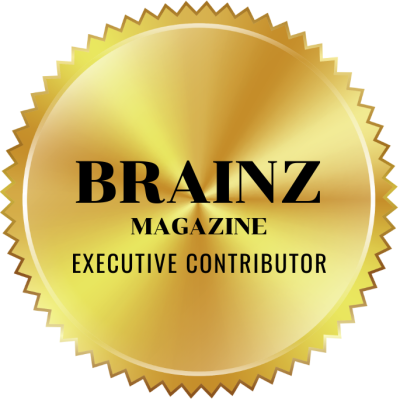
by Julia Felton | Mar 6, 2011
You know when you hear something more than once in a few days you really should check in it, well that’s just happened to me. On Thursday at the Academy of Chief Executives Mark Fritz was talking to us About the Power of Ownership in Leading Across Distances and Cultures and during his amazing seminar he told us we should check out a TED video by Simon Sinek on Leadership. Then I find out my friend Jezz Moore, from Moon Cow, has tweeted the same thing. Synchronicity working or what, but given I’ve been hit with with twice in as many days I felt compelled to watch the video. You can see it here at:
http://www.ted.com/talks/simon_sinek_how_great_leaders_inspire_action.html
What inspired me most about this video was the fact that we all need to begin with our WHY. For the last few years I’ve been told by many mentors and coaches that WHY is the most important thing. When you are clear on your WHY then all subsequent actions like HOW and WHEN will fall into place. Personally, I’ve been struggling to find my WHY – although day by day it becomes clearer. One of my coaches has told me that reason for my inaction is that WHY is not strong enough. One thing that I have observed is that many of the great teachers and successful business people in this world have really strong WHY’s, in many cases driven from a state of despair due to financial ruin or serious health concerns. I find it kind of sad that it takes a serious personal experience for people to become clear on what their WHY is. Surely we don’t need to all reach these depths of despair to be successful.?
What Simon Sinek so clearly articulates in this video is the Golden Circle that starts at the centre with WHY, then contains another concentric circle with HOW and finally a concentric circle with WHAT.

Sinek suggests that really successful organisations and people (such as Apple) start with their WHY. They inspire others to do business with them because they have the same beliefs. Apple do not pitch their advertising based on WHAT they do but rather WHY they do it. This is why they can sell computers, phones and music and no-one doubts the authenticity of the company. Compare this to Dell who like many other companies focus their advertising strategy of the WHAT. Dell make computers and now we are so embedded with the fact that this there is core competency that we can’t conceive of purchasing same a phone or and MP3 player from them.
Furthermore Sinek goes on to explain that purchasing decisions are based on biology not psychology and that the WHAT appeals to the neo-cortex of the brain which controls rational thought whereas the WHY and HOW align with the limbic system The limbic system is concerned with trust and loyalty and decision-making that drives behaviour. So by appealing to a consumers WHY you instantly put them in a place where the buying decision can be influenced by the limbic brain.
So how does this lead onto today’s lesson from the horses. It is just that when a horses meets you he is asking three things:
- who are you
- what do you want; and
- how do you operate.
In this way he is concerned with what is happening in our limbic brain. A horse is also always looking to us to determine our ability to lead. Are we trustworthy and reliable? From this state of why the horse can quickly make that decision on how best to interact with us. Maybe this is why horses are so good as Teachers. They make sure we stay out of our thinking, rational neo-cortex brain and force us to be congruent with who we really are. They challenge our WHY and who we think we are. Invariably in coaching sessions clients have AHA experiences as they realise who they thought they were and how they are acting are incompatible. Horses challenge our WHY are therefore our integrity and congruence and since they are non-judgemental they just feed back what they experience. It can be an eye-opening experience for most people.
So for today spend some time considering what is your WHY. Why are you on this earth and what is your purpose in life. If you need some help here some great resources that I have found really helpful are The Passion Test by Chris and Janet Attwood and Success DNA Detector which can be found on http://www.authorityformula.com/
I’d love to hear your comments below on what your WHY is.
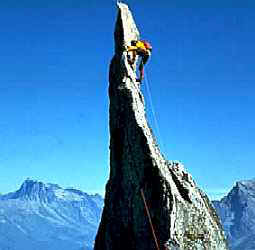
by Julia Felton | Feb 22, 2011
Today’s blog is inspired once again by the behaviour of some horses and the wise words of John Assaraf. I’m currently following John Assaraf’s the Inner Game of Money programme which involves re-conditioning the neural pathways of the brain to be more accepting of money. Research has shown that our outer circumstances are dictated and created by our inner being, belief and thoughts. So if you believe that you should be poor you will be poor. However, by focusing on being wealthy you can attract wealth creating opportunities into your life. This is a 90 day programme and I am on day 69.
On one of the audio tracks John describes the tenacity of young children. They set their sights on a goal and do everything in their power to achieve it. Obstacles are no problem as children just overcome these any way they can. Ironically despite the fact that adults have many more resources available to them they seldom have the tenacity and determination that children do to achieve their goals. When I first heard this I was mesmerised by this observation as it is so true. As adults we see all the barriers and reasons why we should not do something rather than look for creative and innovative ways to solve the challenge. It’s as if ignorance as a child is bliss as you are unaware that something is not possible. Indeed if you believe that something is impossible you create that reality and indeed it is impossible.
This reminds me of a story I heard once of a young man who turned up late to a maths class. On walking in late he saw two maths problems on the board and thinking they were homework he wrote them down and then fastidiously worked on solving the problems. A day or so later he went to his teacher and delivered to him the answers to the questions. The teacher was dumbstruck. You see the two maths problems on the board were not homework but rather examples on unsolvable problems. The young man being unaware of this fact, and having no preconceived idea that the problems were not solvable had approached the challenge in a different manner and been successful. How often in life do we fail to achieve things because we believe that they are not possible. Who put that mindset out there for us to use as our reference point. In fact ignorance can on many occasions equate to bliss as you have no limitations on what is possible.
So back to my horse lesson. This was so funny it made me laugh out loud. You see I have recently adopted two ponies that had been left abandoned to roam on the roads. I’ve called them Thistle and Bracken and they now form part of my little herd, at least until they have gained some trust in people again and have been given the skills to be safe,child friendly ponies. Well Thistle and Bracken are young, maybe a year old at most and they are currently grazing in a roped off area of field within one of my larger pastures. The grass in their area is good but the grass on the other side of the fence is much better. So this afternoon when I went to get the ponies in they decided to go for a run. They galloped round and around the field, their energy ever-increasing. As they galloped towards the electric fence (a natural barrier to the lush grass on the other side) my heart was in my mouth. I was worried they might crash into the fence although instinctively I knew they would probably skid to a stop. How wrong was I. Seeing the electric fence Bracken effortlessly jumped over it. The fence was at least a metre high and Bracken can’t be more than taller than that. Bracken clearly hadn’t seen the fence as a barrier to the lush grass but rather as an obstacle to be overcome, however that might be. Thistle however took a different approach ploughing straight through the fence and breaking it. It was so heartwarming to see these little ponies being so tenacious in their quest for the best grass. They had no pre-conceived ideas that they could not get over or through the fence and so faced with a challenge tenaciously moved forward. I would suggest that tenacity is perhaps the magic ingredient missing from the lives of many adults today. What do you think?
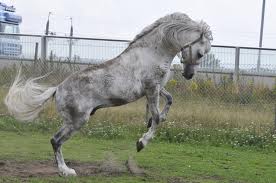
by Julia Felton | Feb 20, 2011
Yesterday I was fortunate to have the opportunity to attend an Equine Facilitated Learning training day with Andrew McFarlane of LeadChange. Andrew has been one of my mentor during the last year whilst I have been establishing Connect-2-Success, my own Equine Inspired Leadership programme. These days are great opportunities to connect with others in this niche sector and also to get some great coaching from the horses.
As readers of my blog will know I believe that horses can be the best teachers of life lessons and yesterday was no exception. Whilst being coached I decided my main coaching outcome was to have fun. I’m acutely aware that running my own businesses I get so wrapped up in what is happening that I forget to enjoy the journey. I remember once my equine mentor Carolyn Resnick telling me “Make sure you enjoy the journey Julia as the destination may not be all you had hoped it will be, and therefore you will be disappointed”. How often do we focus on the end result (destination) and fail to enjoy the process? I know in my experience all too often especially when I was working in a corporate role. We become transfixed by the outcome and fail to notice the successes and achievements along the way. We become tunnelled vision and derive no pleasure from the process. How unfulfilling and boring life can be if we live this way.
So back to my coaching session. There I was intent on having fun with this pony called Prince, and he was well up for having fun too, we were running round the arena like a couple of kids and enjoying ourselves. Suddenly, Andrew asked me to get Prince to half pass along a pole that was on the ground. This meant I needed to get the horse to move horizontally across the pole from left to right. The pole was between Prince’s back and front feet and he needed to cross his back legs and then his front legs so he could move horizontally – no mean feat. I had no idea if Prince (or indeed if I could do this) so I immediately went into task mode. Dissecting the movement into steps and asking for his hind feet to move and then his front feet. Much to my surprise we managed to half pass half the pole and I was delighted. Then Andrew asked me “How much fun was that?” In all honesty, none. My desire to prove I can do the task meant that I forgot about having fun. Reflecting back on my life I realise that virtually every time I focus on a task I forget to have fun. And let’s face it what use is living if there is no fun. So my mantra for this month is to ensure that I have fun in whatever I’ve doing.
Maybe it’s no surprise that I currently enrolled in a programme called “Screw Work, Let’s Play”. It’s all about doing what you love and having fun doing it. For the next 30 days we have to execute a play project – something we love to do and have fun with – that stretches us. Before my experience with Prince I had come up with an idea to write an e-book but now I realise I only chose that because it is something I need to do, not because it will be fun. So I’m back to the drawing board to figure out what fun looks like for me. So whatever you are doing, make a wise choice and have fun doing it because I’m sure you might regret it if you don’t.
I’d love to hear your comments on what constitutes fun for you.

by Julia Felton | Feb 12, 2011
Todays blog has been inspired by one of my clients that I was coaching this week. Let’s call the client Susan. Well Susan had just had a big row with her partner and as a result was feeling sad and angry. She just wanted to left alone and so she decided to go for a walk. There was light drizzle in the air and she ambled around the farm that she called home. She could hear the bird song in the background as her mind replayed the argument in her head. She was upset by how she had let her boyfriend manipulate her again and make her feel unworthy.
Without thinking her walk ended up taking her to the field where her horses lived. Susan heart lifted at the sight of her horses grazing silently in the field. Part of her wanted to join their herd for the safety and security they brought and yet at the same time she felt anxious about letting her horses see her when she was in this emotional state. Susan had always been taught that she needed to be strong around her horses and display strong leadership. She did not want to bring them the negative energy that she was experiencing and yet her feet drew her into the field. She climbed the fence and then found a log and sat down, sharing territory with her horses, something she had done many times before.
For two weeks Susan had been sharing territory with her horses and they had just ignored her. They acknowledged her presence as she entered the field but just kept themselves to themselves, grazing quietly and never interacting with her. However, today things were very different. After ten minutes her trusted elder horse came over, totally unprompted, and just stood next to Susan. Susan said it was just as if the horse knew she needed support and was totally willing to be there for her with no expectation. For Susan the realisation came that she did not always need to be strong but could show vulnerability and that was fine.
Susan’s story touched me profoundly as I recalled how many times in the past I have put on that armour of bravery when in fact I was in need of help. I’ve seen this happen numerous times in the corporate world, particularly leaders, who often think they should have all the answers. Well the reality is that when we let out guard down and show people that as leaders we too are vulnerable we can drastically improve our likeability to others. Somehow we are no longer aloof, we become approachable human-beings and this helps us form connections with others.
So my thought for today is that if you are feeling vulnerable do not think that this is necessarily a sign of weakness. Share your concerns and fears and you might be amazed at the level of support that you will receive. As always I’d love to hear your comments.
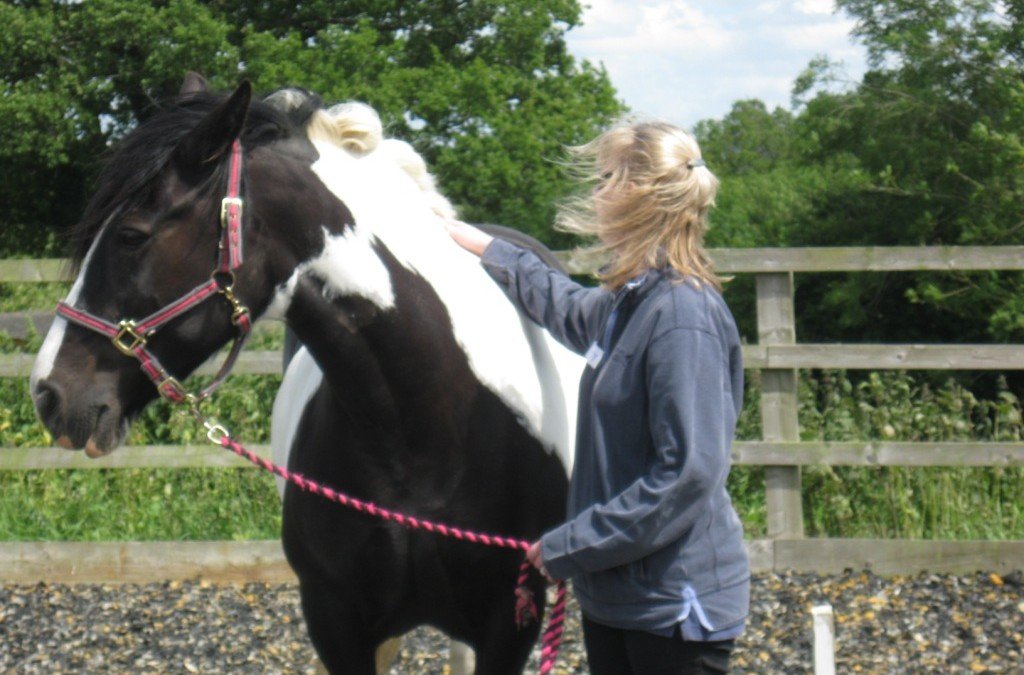
by Julia Felton | Jan 5, 2011
We are all leaders, some lead themselves, some lead others. Being a congruent leader makes life easier and more meaningful. Equine Assisted Education is designed to help everybody lead the life they want to lead in the way they want to lead it.
Now that people are educated and think for themselves, we need a paradigm shift in their development. Congruent, inspirational leadership by example is the order of the day. This harmonious leadership is about four things:
1) being clear about what you want at any given moment and understanding what is congruent for you,
2) understanding your peers and those you are leading, the way they think and communicate and
3) simultaneously focusing on both 1 and 2 in order to
4) take appropriate and effective action.
This brings huge benefits to yourself and everybody around you.
Equine Guided Leadership Development is a powerful experiential approach for developing aligned personal skills in action by working in partnership with horses. You try out your skills by working with a large, powerful horse to do simple tasks. Why horses? Because horses are extremely canny herd animals that only respond well to good congruent leadership and instinctively challenge weak leaders. They don’t have a personal agenda. They just respond to who and how you are at any moment. Believe it or not, human-to-human communication is 93% non-verbal yet most education and training concentrates on the remaining 7%,words. The remaining 93% is largely neglected. This means there is enormous scope to achieve a lot even with just a little work on that 93%.
This is what makes horses so useful – 100% of a horse’s communication is non-verbal. They don’t understand words, so you can’t smooth-talk them or hoodwink them. They’re experts in non-verbal communication. And they’re big and powerful, so intimidation is not an option. As you learn to lead a horse without words (and without force), you are developing the neglected 93%. You will be amazed at how instant and accurate the feedback is. Guaranteed.
I’d love to hear about any experiences that you have had with Equine Facilitated Learning.
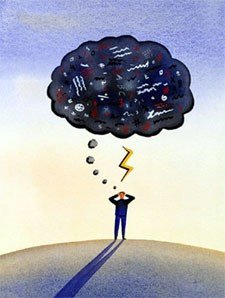
by Julia Felton | Dec 21, 2010
Throughout the world many leaders are struggling with the leadership challenges emerging from the current climate. Some are driven by greed, some by fear and many just running around like headless chickens not sure what to do; they all have one thing in common they do not demonstrate a flexible leadership style that enables them to adapt to a rapidly changing environment, get buy in from their followers and lead strongly forward for the good of all.
So what do horses have to do with leadership; simply put they are masters of sustainable, flexible and effective leadership. They have been demonstrating it for the last 5 million years.
Windsor based Acorns2Oaks and German based HorseDream have partnered to bring a powerful and profound leadership development programme to the UK. Both Acorn2Oaks and HorseDream have an impressive track record of bringing “Horse Assisted Education” to organisations throughout Europe. Their clients include Cisco Systems, SAP, Allied Irish Bank, CAP Gemini, Proctor and Gamble, Nokia, McDonald’s, Generali, Würth Elektronik and AOL Germany. This new partnership is the first of many spreading throughout Europe.
David Harris founder of Acorns2Oaks says” The leadership learning from the horses is the most effective, flexible and sustainable available. Together with HorseDream we have taken many hundreds of corporate leaders through our programmes and we always get amazing learning and results. Organisations often come back again and again. The partnership with HorseDream means we can now provide consistent programmes to a high standard and quality throughout Europe. This is a very attractive proposition to European companies.” Acorn2Oaks are the first of the “HorseDream” partners to run “HorseDream Partner Licensed Workshops” outside of Germany.
I am delighted to have been one of the first students to attend the HorseDream Partner Licensed Workshop run by Dave Harris. Under his guidance and mentoring I now offer Horse Assisted Education in leadership, teamwork and communication to companies and individuals. Please contact me to discuss how Business HorsePower can help you and your teams.
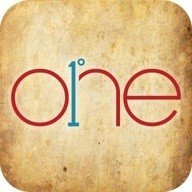
by Julia Felton | Dec 7, 2010
For the last few days it has been snowing and my horses – Toby and Charlie – have loved this. They have been out frolicking and rolling in the soft powdery snow making some pretty good disguises for themselves. Their playfulness has been inspiring and heart-warming for me as I’ve dug my car out of snow drifts and cleared pathways to lead them to the field. Today, the snow has finally began to melt and where there was once white, fluffy snow we now have large lumps of solid ice. The landscape has changed beyond recognition.
Given the better weather (of course it’s all relative) today I decided to take Charlie for a short ride and something amazing happened. The piles of snow-ice, that only a few days ago were his best friend, and now his worst enemy. He is terrified of them and keeps darting to the far side of the road to avoid them. I find this all really amusing, that such a simple change in something can cause such a dramatic effect.
I’m reminded of something that one of my mentors once told me. “It only takes slight shift to alter the course of your life”. Just think about the fact that it only takes a one degree change in temperature to convert water to steam or indeed water to ice. This is such a tiny change and yet most of us ignore making these types of minor changes in our lives as we think that the effect won’t be significant enough. We live in an instant gratification society and want results now, when in fact a number of small changes done day in day out will make a massive difference to our lives.
Jeff Olson explains this concept beautifully in “The Slight Edge”. In this book he describes a water-lily on a pond. On day one the water-lily covers just tiny portion of the pond, but on day two the waterlily doubles and then on day three doubles again, and again and again. Eventually after 30 days the entire pond is covered by water lilies. At the outset you would never have thought that was possible and yet repetition of this tiny change magnifies itself disproportionately resulting in amazing results.
So what small change will make in your life today that will magnify itself into a massive change tomorrow?. I’d love to hear what you choose.

by Julia Felton | Dec 3, 2010
A recent study reported in the Evening Standard suggests that natural leaders are not always born and that most of the desirable personal characteristics can be learned. So in today’s ever changing world what characteristics are employers looking for in leaders. The study suggests the following:
- Ability to inspire and motivate – 36%
- High levels of emotional intelligence – 34%
- Ability to deal with people – 34%
- Natural leadership – 24%
- Trustworthiness – 22%
- A natural communicator – 22%
- Possessing vision – 22%
- Drive and ambition – 22%
So how do employees learn these desirable characteristics? One way is to provide the employee with a mirror of their behaviour because they may not be aware of the traps they are falling into. They also need to know what they become under pressure. Traditional ways of creating this mirror are through coaching programmes or 360 degree feedback. The challenge with these practices is that they can lack objectivity because human intervention is required which could cloud the mirror.
Horse Assisted Education provides a cost-effective means of getting that feedback as the horse mirrors exactly how you are feeling. Horses provide us with immediate, 100% non-judgemental, observable feedback, mirroring our internal reality. Living in the 93% of the non-verbal world of communication, they are not impressed by position, status or power. They cannot tell who is the CEO or who is the janitor. They just respond to what is presented to them.
Horses mirror the essential qualities of leadership – trust, authenticity, honesty, intuition, listening, a willingness of spirit and perseverance. They have no agenda with us. They simply reflect our strength of character, our heart, our internal incongruence and our self-limiting perceptions. They help us understand that leadership begins with who we are being. Horses help us close the gap between how we actually present ourselves to others, and how we think we are being.
So next time you are looking for an innovative management development programme just consider what horses could teach you.
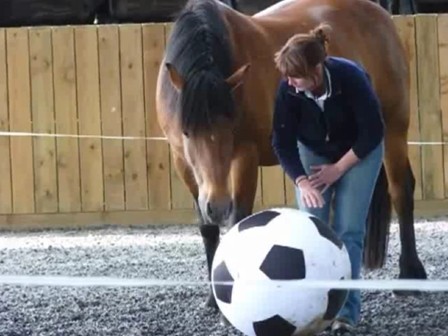
by Julia Felton | Nov 29, 2010
Horse Assisted Education (HAE) is also commonly referred to Equine Facilitated Learning (EFL), Equine Guided Leadership (EGL) and a plethora of other names. It is an effective and impacting method for participants to develop their communication skills, increase self-awareness and inspire teamwork, collaboration and trust through genuine leadership. All these attributes are readily transferable to the workplace which is why I believe that horses can teach us real lessons for life. During an HAE session participants discover a great deal about themselves as they learn to achieve tasks with horses without the benefit of verbal communication, building trust through empathy and finding solutions via inventive thinking.
If you want to achieve any of the following in your life then HAE might just be for you:
- You want to develop an authentic leadership style that instills commitment and engagement in others, creates a high performance culture and a more productive and motivated workforce.
- You want to be a better leader, trust yourself, inspire trust in others and be able to rely upon others in return.
- You want to develop your own self-awareness, emotional intelligence, be more consistent, a better communicator, more confident.
- You need to understand how your actions impact upon others.
- You want to improve your working relationships, get immediate and direct feedback on your style, try out different approaches and see the response.
- You want to work on gaining and maintaining trust, achieving rapport by establishing a relationship based on mutual trust.
- You need your team to work more effectively.
- You want to understand the dynamics, the successes and failures.
- You want to achieve cohesiveness and alignment.
HAE provides a new approach to experiential learning with the distinct ability to rapidly identify the core strengths and weaknesses of your interpersonal skills. These results driven programme provide high impact personal and professional development with a difference via a uniquely interactive and rewarding medium. They are also cost-effective too when you consider that on average only 4% of what is learnt in a classroom is retained. So what would you rather invest in a rather boring day of classroom learning or an interactive action based learning day where the horses are your teachers.
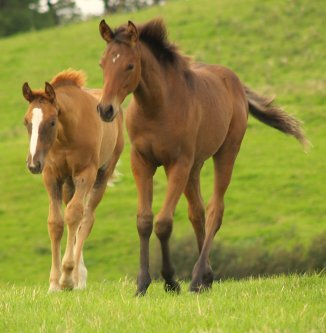
by Julia Felton | Nov 25, 2010
Welcome to my blog on Business HorsePower – the business and life lessons we can learn from horses. My inspiration for this blog comes from my own life experiences and the lessons that horses have taught me. When I got my first horse I never dreamed that I was about to embark on a journey of personal discovery where my horse taught me more about who I was as a person and what type of leader I was than any classroom training and coaching that I have ever experienced.
So how come horses can be such great teachers and what life lessons can they share with us? Well it all comes down to experiential or as I like to call it action learning. We all have different learning styles but research shows that by actually getting involved in something helps you understand that activity. This was summed up in c450BC by Confucius who said:
“I hear, and I forget. I see and I remember. I do and I understand”
For many hundreds of years man and horse have worked together, however in recent times many people have come to realise that horses are not just good working partners and pets, but also great TEACHERS. We are learning that horses can teach us about many highly valued core skills that can get lost in today’s hectic lifestyle.
Given the current social and economic climate it is now more important than ever to rediscover these core skills. Horses are the perfect teachers to help reconnect us to these skills as they provide immediate and honest feedback. They act as a mirror of our soul revealing insights through eureka moments that hours and hours of classroom theory can simply never achieve.
Horse Assisted Coaching (HAC) a new field of experiential learning in which individuals develop their own style of leadership through a variety of interactive exercises with horses. Today a diverse number of corporations use Horse Assisted Coaching as an integral part of their management development and leadership programmes.
I hope you will join me as I explore the lessons that horses can teach us about life.

